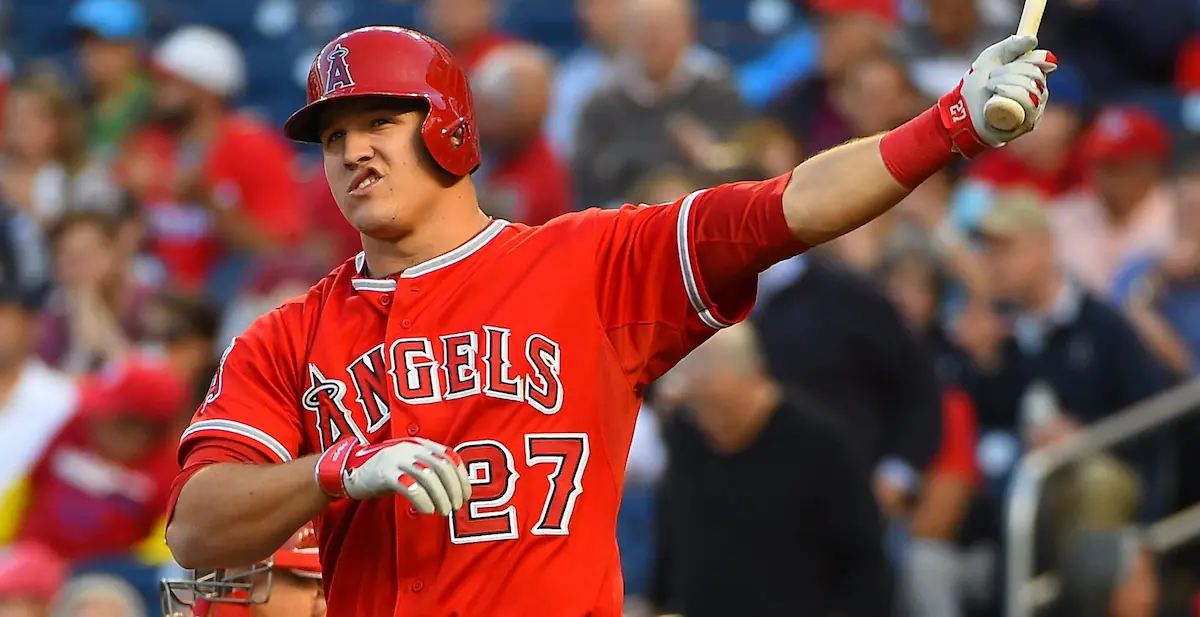Latest Sports Picks, News and Previews

The MLB has arguably the most rich and storied history in all of sports – after all, it’s called America’s pastime for a reason. Even still, we seem to continue having feats accomplished that we haven’t seen before, and that is largely thanks to how today’s young stars have changed the game.
Of course, the youngest players to be the MLB MVP aren’t all from the past few years, or even this century. So, let’s dive into the top five youngest MLB MVPs of all time.
Before we get into a couple of players that are considered household names by today’s fans, we’re throwing it back to the early 1970s to begin the list of the top five youngest MLB MVPs of all time. In fact, Vida Blue is the only one on the list that was just 21 years old. Surprisingly enough, this also wasn’t even his rookie season.
This was his third season with the Oakland Athletics before leaving the Bay Area after nine seasons. He was a southpaw for the A’s whose 1.82 ERA was behind only Tom Seaver in 1971. However, his 301 strikeouts were more than Seaver’s 289, although it was yet again the second-best behind Mickey Lolich. Regardless, holding opposing batters to just a .189 average (best in the MLB) was enough to earn him an MVP award so early in his career.
If there was ever a player that fans would expect to be on the list of the top five youngest MLB MVPs of all time, it would be Bryce Harper. He was touted as one of the most high-profile prospects as young as the age of 15, so it was quite a bit of hype to try and live up to. Surprisingly enough, he has been able to do so.
Before leading the Philadelphia Phillies to a World Series two seasons ago, Harper began his career with the Washington Nationals. Of course, this was the first of his two MVPs, and it was his fourth year in the MLB. His 42 home runs were tied for the third-most in the league and racked up 99 RBIs, but it was his slugging that was truly remarkable. In 2015, Bryce Harper’s .649 slugging percentage was far above the next-closest player with .590.
If you’re thinking that a .590 slugging percentage is still fantastic, that’s because it is, and it was Mike Trout who was behind Harper. However, it was he who won the MVP the year prior. He was just as touted of a prospect as Harper and considered the ultimately five-tool player. If not for injuries, he’d likely have the record for most MLB MVPs, and even with them, he’s won it three times in a six-year span.
Also like Harper, his first MVP came four seasons into his career, and all 14 years he’s been with the Los Angeles Angels. It feels as though he carries the team on his back season after season, but baseball is a true team sport. Regardless, in this first MVP season, Trout hit 36 homers, had the second-most RBIs with 111 and an incredible .938 OPS.
The Baltimore Orioles have recently come back to prominence after years of being among the worst in the MLB. Prior to that were some of the best seasons in franchise history, and that was in large part due to Cal Ripken Jr. Of course, he is most recognized for his MLB-record 2,632 consecutive games played, but he was far more than that.
While he didn’t have the outright lead in many statistical categories, his 27 home runs, 102 RBIs and .318 batting average helped lead the O’s to a World Series victory, which was the last one in franchise history. He also did this in just his third MLB season, and his 211 hits that year were one way in which he did lead the league.
Going back even further than Cal brings us to Johnny Bench, who is another historical figure of America’s pastime. The lifetime Cincinnati Red played for the Queen City for 17 seasons, winning the first of his two MVP awards in just his fourth year. This came just a year before the first player on our list of the top five youngest MLB MVPs of all time, and he would win it a year after in 1972 as well.
Keep in mind that Johnny Bench won these awards while playing alongside Pete Rose, who would perennially lead the MLB in hits. That includes this 1970 season, where Rose had 205 hits. However, Bench went on to win the MVP award thanks to a ridiculous 45-homer, 148-RBI season. For a catcher to lead the league in RBIs by 19 is nothing short of remarkable, not to mention his .293 batting average, .587 slugging percentage and .932 OPS.

Mark has been a lifelong fan of all sports, and five years ago turned it into a profession, specializing in the NFL, NHL and MLB. He is a diehard Baltimore Ravens fan and has had his work published in sites such as Sports Illustrated, Pickswise and other top outlets.